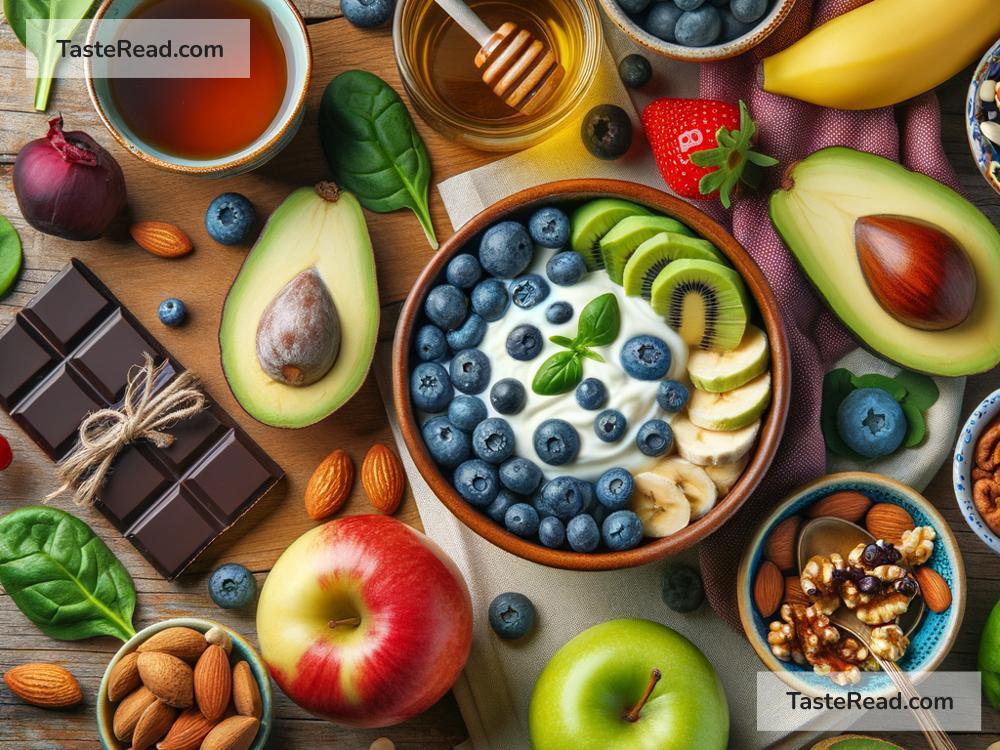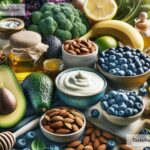Foods for Enhancing Self-Regulation: Eating for a Balanced Mind and Body
Self-regulation is the ability to manage our emotions, thoughts, and behaviors in different situations. It helps us stay calm during stress, make healthy choices, and stay focused on our goals. While self-regulation can feel challenging at times, there’s good news: what we eat can play a big role in improving our ability to stay in control. Some foods support brain health, energy levels, and emotional balance, making it easier for us to regulate our responses to the world around us.
In this article, we’ll explore simple foods that can help enhance self-regulation. Whether you’re trying to manage stress, improve concentration, or stay calm, adding these foods to your diet might support your efforts.
1. Omega-3-Rich Foods for Brain Health
The brain is the control center for self-regulation. Omega-3 fatty acids, found in certain foods, play an important role in keeping your brain healthy. They help improve mood, reduce stress, and support clear thinking.
Foods rich in omega-3:
- Fatty Fish: Salmon, sardines, and mackerel are great sources of omega-3.
- Nuts and Seeds: Walnuts, chia seeds, and flaxseeds provide plant-based omega-3.
- Fortified Foods: Some eggs and plant-based milks are fortified with omega-3.
Try adding salmon to your weekly meals or sprinkling chia seeds into your smoothies or yogurt. Your brain will thank you.
2. Whole Grains for Steady Energy
Self-regulation can be easier when you have stable energy levels. Processed foods like sugary snacks can cause energy spikes and crashes, which might lead to irritability or difficulty focusing. Whole grains, on the other hand, offer slow-releasing energy, keeping your blood sugar and mood stable.
Examples of whole grains:
- Oats
- Brown rice
- Quinoa
- Whole-grain bread and pasta
Start your day with oatmeal or opt for whole-grain bread for your sandwiches. These small changes can make a big difference in your daily energy and focus.
3. Protein for Sustained Focus
Protein is another key nutrient for self-regulation because it helps stabilize blood sugar and supports the production of neurotransmitters—chemicals in the brain that impact mood and behavior. Eating protein-packed meals or snacks can prevent mood swings and help you stay focused.
Protein-packed foods:
- Lean meats like chicken and turkey
- Eggs
- Greek yogurt
- Beans, lentils, and chickpeas
- Nuts and nut butters
Combine protein with fiber by pairing hummus with vegetables or eating a handful of almonds with fruit. These combos can keep your mind steady.
4. Fruits and Vegetables for Vital Nutrients
A colorful plate full of fruits and vegetables can work wonders for your self-regulation. These foods are rich in vitamins, antioxidants, and minerals that support brain health, reduce inflammation, and clear up brain fog. Certain nutrients, like magnesium and vitamin C, help calm the mind during stress and anxiety.
Best fruits and vegetables for self-regulation:
- Berries: Blueberries, strawberries, and raspberries are packed with antioxidants.
- Bananas: High in potassium, they help regulate blood pressure and neurotransmitter function.
- Leafy Greens: Spinach and kale are rich in magnesium, calming the nervous system.
- Carrots and Sweet Potatoes: Rich in beta-carotene, they support brain function.
Snack on an apple or throw some spinach into your morning smoothie to reap these benefits easily.
5. Foods with Healthy Fats for Emotional Balance
Not all fats are bad! Healthy fats like mono- and polyunsaturated fats are crucial for brain function. They help support mood regulation and emotional balance, making it easier to navigate stressful situations without losing control.
Sources of healthy fats:
- Avocados
- Olive oil
- Nuts and seeds
- Fatty fish like salmon
- Dark chocolate (in moderation)
Replace processed snacks with a few slices of avocado on whole-grain toast or enjoy a square or two of dark chocolate for a mood boost.
6. Fermented Foods for Gut Health
Did you know that your gut and brain are connected? A happy gut leads to a healthier brain! Fermented foods contain probiotics that improve gut health, which may also support mental health and self-regulation.
Examples of fermented foods:
- Yogurt with live cultures
- Kefir
- Kimchi
- Sauerkraut
- Kombucha
Add a side of kimchi to lunch or sip on kombucha during the afternoon for an easy gut-friendly choice.
7. Water for Calm and Focus
Sometimes, it’s not about what you eat—it’s about what you drink. Staying hydrated is essential for mental clarity and emotional balance. Even mild dehydration can lead to irritability and reduced focus. Make sure to drink enough water throughout the day to keep your brain functioning at its best.
If plain water feels boring, spice it up by infusing it with fruits like lemon, berries, or cucumber. This small effort makes drinking water more enjoyable.
Final Thoughts
What you eat has a direct impact on how you think, feel, and act. By choosing foods that support brain health, stabilize energy, and promote emotional balance, you can enhance your self-regulation skills over time. Incorporate these foods into your diet gradually, and remember that small changes can lead to big improvements.
If you’re mindful of what you eat, you’re not just fueling your body—you’re giving your mind the tools it needs to thrive. So, whether it’s enjoying a dish of salmon, sipping on kombucha, or snacking on a handful of almonds, every bite can move you closer to a calmer, more focused version of yourself.


